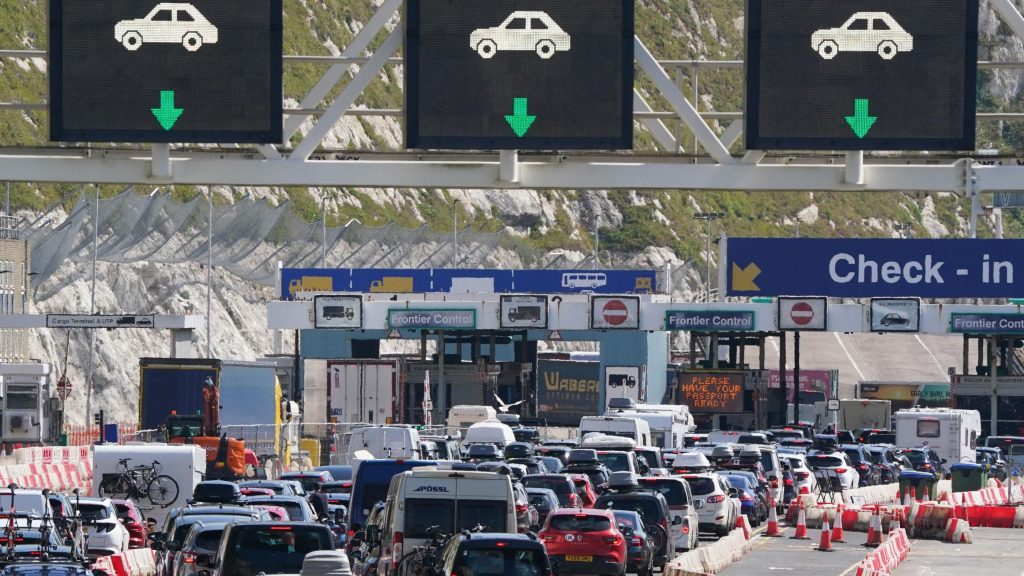UK to spend £10.5m on new EU border checks
3 min read

The UK government has announced a significant £10.5 million investment to prepare for upcoming changes in EU border regulations, set to be implemented this autumn. This funding will be directed towards major transport hubs including the Port of Dover, Eurotunnel at Folkestone, and Eurostar at St Pancras, with the goal of minimizing traveler delays.
Starting this autumn, travelers from the UK and other non-EU countries will encounter a new digital border system introduced by the EU, known as the Entry/Exit System (EES). This system will require travelers to provide biometric data, including photographs and fingerprints, as part of their entry process into EU countries.
The allocated funds will be used to equip these key ports with the necessary technology to handle these new border checks. Under the EES, travelers will need to register their fingerprints and a photograph alongside their passport details. This registration will be valid for three years, and travelers must update their information each time they cross the border, replacing the traditional passport stamping process.
The EES checks are expected to primarily take place at international airports. However, for those traveling through the Port of Dover or on international trains, the checks will be conducted in the UK. The specific technology for capturing biometric data at these ports has not yet been finalized, though there have been suggestions that devices similar to tablets could be used for fingerprint collection.
The EES initiative was originally scheduled to begin in 2022 but has faced several delays. The implementation was first postponed to May 2023, then to the end of 2023, and is now anticipated to commence in November 2024.
Lilian Greenwood, the Minister for Future Roads, emphasized the government’s commitment to ensuring a smooth transition. “We are thoroughly reviewing the EES plans to make sure that registration is seamless and that queue times are kept to a minimum. Our goal is to avoid excessive queues at our ports, and this funding is crucial to preparing our borders for the upcoming changes,” Greenwood stated.
Emma Ward, Chief Operations Officer at the Port of Dover, highlighted the port’s efforts to be fully prepared. “We are working diligently to ready the facilities that will be utilized by French border officials operating the new system,” she said.
Each port will receive £3.5 million from the government. This initial funding aims to mitigate potential delays associated with the EES. For the Port of Dover, the money will support the filling in of a marina to create additional space for processing coach passengers. Eurostar and Eurotunnel will use their share to invest in technology and staff training, with Eurotunnel also planning to add more kiosks if necessary.
Both Eurostar and Eurotunnel have already committed significant personal investments to adapt to the EES changes. Getlink, which manages Eurotunnel, began preparations two years ago to align with the new system. Yann Leriche, Getlink’s Chief Executive, stressed the importance of maintaining high customer satisfaction. “Our focus has always been on delivering the best crossing experience and competitive border processing times for non-EU travelers,” Leriche commented.
This financial boost from the UK government represents a strategic move to ensure that the upcoming changes to border procedures are managed effectively, minimizing disruptions for travelers and facilitating a smoother transition to the new EU regulations.